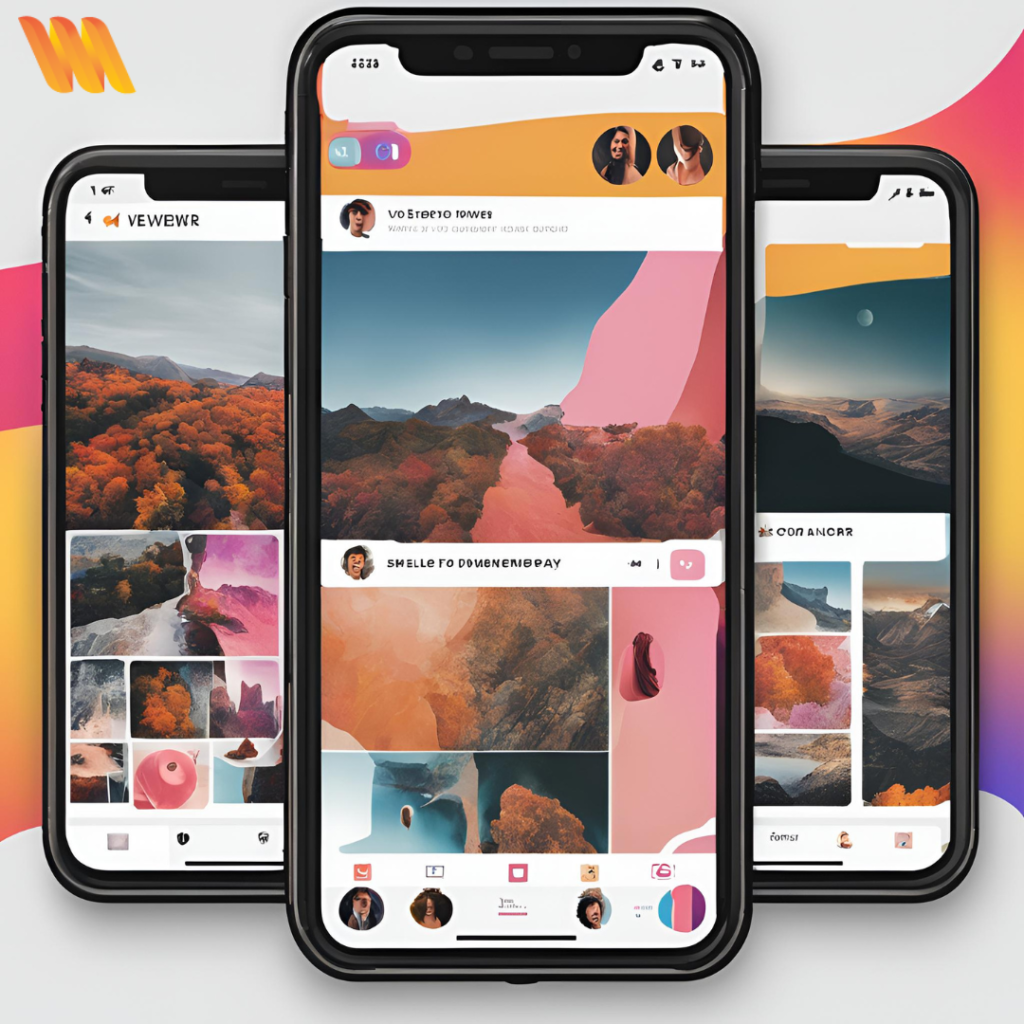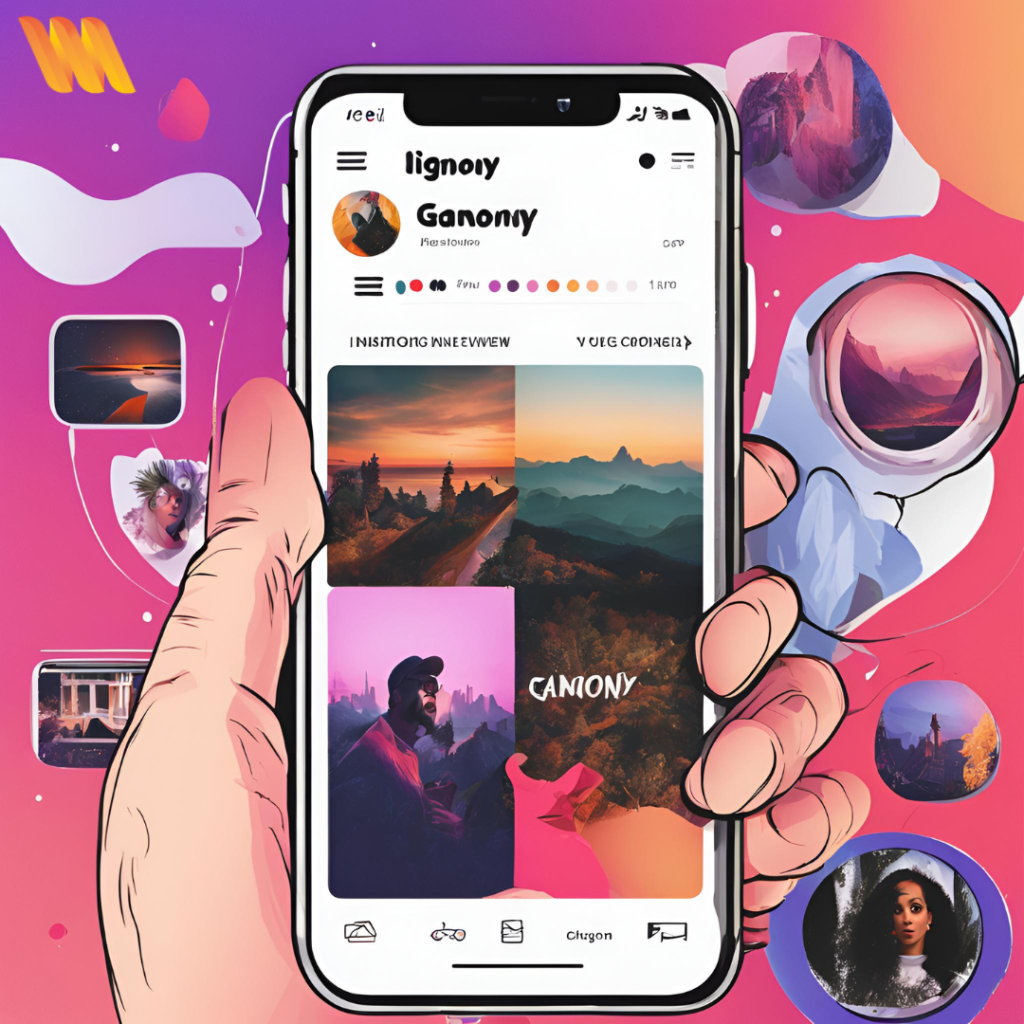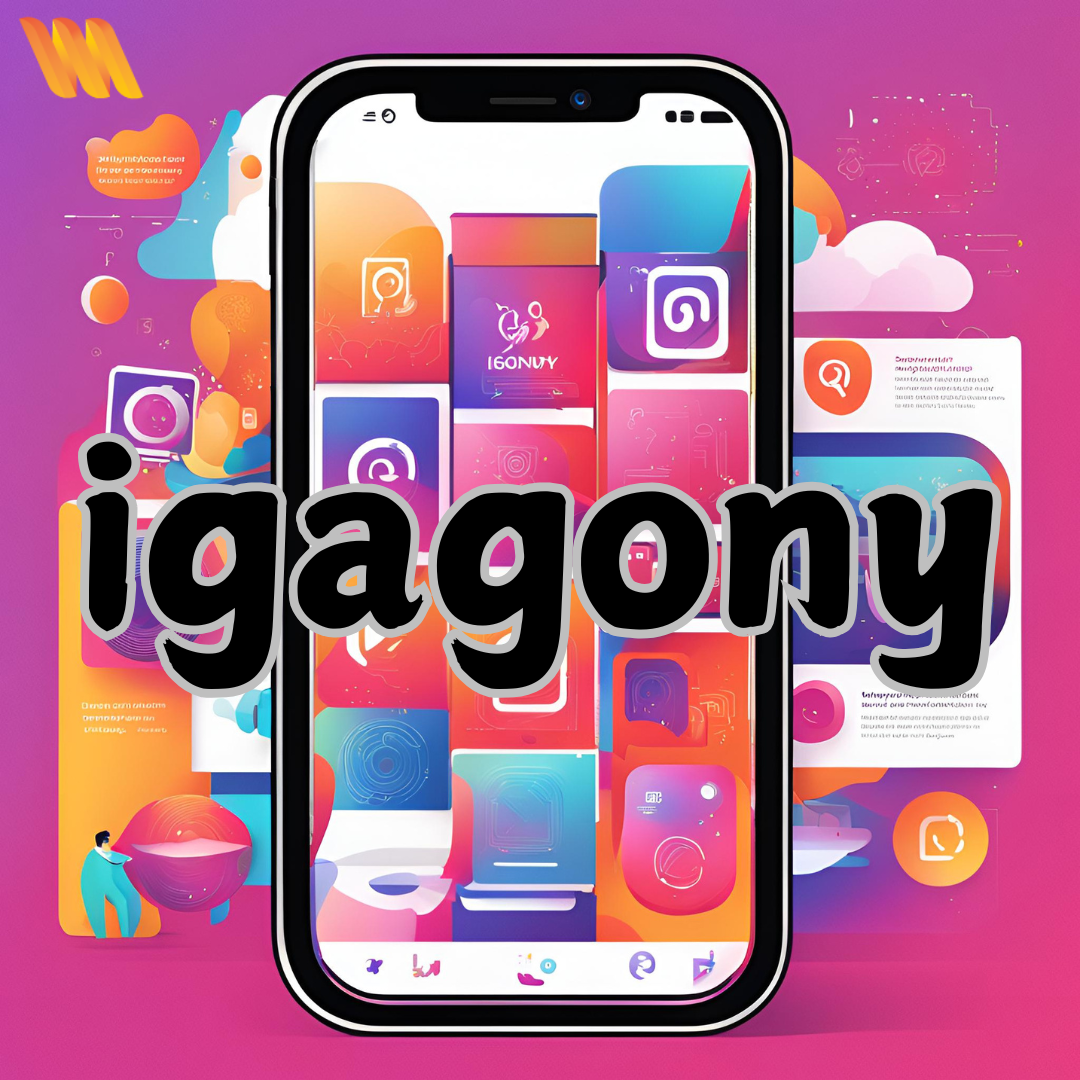Quick Facts About IGAGONY
| Fact | Description |
|---|---|
| Origin | The term IGAGONY blends “Instagram” and “agony,” reflecting the emotional toll of excessive social media use. |
| Prevalence | Studies show that social media-related anxiety affects a significant portion of users, particularly among younger generations. |
| Curated Perfection | Instagram’s emphasis on idealized content can amplify feelings of inadequacy and self-doubt. |
| Mental Health Resources | Instagram has introduced mental health features, like hiding likes and providing self-care tips, to reduce the emotional impact on users. |
| Social Comparison | Constant exposure to curated, idealized images can lead to unhealthy comparisons, contributing to IGAGONY. |
What is IGAGONY?
The term IGAGONY may not be widely recognized in mainstream media or academic circles, but it has found a niche in various online communities, especially those focused on emotional well-being, digital culture, and psychological discussions. IGAGONY is a modern blend of two powerful concepts: “agony” and “Instagram,” often used to describe the emotional pain, stress, or discomfort caused by the excessive use of social media platforms, particularly Instagram. In a world where social media constantly influences our daily lives, IGAGONY reflects the emotional toll these platforms can have on mental health.
The digital age has brought us closer in many ways, but it has also introduced new pressures. Social media platforms, especially Instagram, have revolutionized how we communicate, share experiences, and connect with others. However, with these advantages come psychological consequences, which often manifest as stress, anxiety, and a general feeling of inadequacy. The concept of IGAGONY is an attempt to capture the emotional dissonance many people feel when interacting with Instagram in ways that may exacerbate their emotional well-being.
The Emotional Impact of Instagram
One of the primary contributors to IGAGONY is the way Instagram cultivates a culture of comparison. Users scroll through their feeds, viewing curated images of other people’s lives that appear to be perfect. These images often create unrealistic expectations, leading individuals to measure their own lives against these ideals. This constant comparison can result in negative feelings such as envy, self-doubt, and even depression.

Instagram, like many social media platforms, thrives on the concept of likes, comments, and followers, creating a measurable and quantifiable way for users to assess their self-worth. When an individual’s post doesn’t receive as much attention as they hoped, it can lead to feelings of rejection and isolation. Over time, these small moments can accumulate, leading to a broader sense of discontentment or distress—this is where IGAGONY comes into play.
Additionally, the pressure to constantly post content that adheres to trends or portrays a certain lifestyle can be overwhelming. Influencers and content creators, while often admired for their creativity, also face the pressure of maintaining a flawless online persona. This pressure extends beyond just influencers, impacting regular users who feel the need to keep up with these standards.
IGAGONY and Mental Health: A Growing Concern
The link between social media use and mental health issues has been extensively researched, with numerous studies suggesting a direct connection between the two. Prolonged use of platforms like Instagram can trigger feelings of loneliness, depression, and anxiety. IGAGONY can be viewed as a subset of this broader issue, highlighting the specific emotional discomfort caused by the digital nature of Instagram interactions.
For many, the dopamine rush of getting likes and comments on a post becomes an addictive cycle. When these reactions aren’t as positive or frequent as expected, it can lead to feelings of frustration, sadness, or even anger. In extreme cases, it can result in social media burnout, where users withdraw from Instagram altogether to escape the emotional toll.
Furthermore, Instagram’s algorithm plays a significant role in the way content is distributed. The platform tends to prioritize content that generates more engagement, which often results in a skewed representation of reality. Posts that are highly edited, overly curated, or otherwise designed to get attention flood users’ feeds, reinforcing the idea that only perfect images or content are valuable. This can cause users to feel as though they must constantly compete to maintain relevance, exacerbating the feelings of IGAGONY.
The Psychological and Social Dimensions of IGAGONY
The emotional strain of IGAGONY is not limited to individual users. On a social level, the normalization of curated perfection on Instagram can affect entire communities. It creates an environment where people feel pressured to project a specific image of success, happiness, and beauty. This environment may foster a culture of inauthenticity, where the reality of personal struggles, flaws, and imperfections is rarely visible.
Additionally, the fear of missing out (FOMO) is another significant contributor to IGAGONY. When users see their peers posting about exciting events, vacations, or experiences, they may feel left out or inadequate if they are not living similar experiences. This sense of exclusion can lead to increased stress and emotional fatigue.
Overcoming IGAGONY: Practical Steps for Coping
While IGAGONY can be overwhelming, there are several strategies that individuals can adopt to reduce its impact and regain control over their mental well-being.
- Limiting Social Media Use: One of the most effective ways to combat IGAGONY is to reduce the amount of time spent on Instagram. Setting daily time limits for social media use or using apps that track and limit screen time can help users regain a sense of balance in their lives.
- Curating Your Feed: Instagram allows users to follow accounts that resonate with them. By choosing to follow people who promote positive, authentic content, users can foster a more supportive online environment. Accounts focused on mental health, self-care, or body positivity can help shift the narrative away from perfectionism.
- Practicing Digital Detoxes: Taking regular breaks from Instagram can help individuals disconnect from the constant barrage of content. Whether it’s for a weekend or a week, a digital detox can help refresh the mind and reduce the emotional toll of IGAGONY.
- Seeking Professional Support: For those struggling with the emotional impact of IGAGONY, talking to a therapist or counselor can be incredibly helpful. Mental health professionals can provide strategies and coping mechanisms to deal with the negative emotions linked to social media use.
- Engaging in Real-Life Connections: Sometimes, the best way to combat the emotional isolation created by Instagram is to engage more deeply with the real world. Spending time with family and friends, participating in physical activities, or focusing on hobbies that bring joy can help individuals reconnect with themselves outside the digital space.
The Role of Instagram in Shaping Modern Culture
Despite the negative impacts, it’s essential to recognize the profound influence that Instagram has had on modern culture. It has reshaped industries, revolutionized marketing, and provided a platform for social movements. The ability to connect with others around the world and express oneself creatively has undoubtedly enriched the lives of millions.

However, with this power comes responsibility. It is crucial for both Instagram as a platform and its users to recognize the emotional impact it can have and to take steps to mitigate harm. Instagram has begun taking measures to reduce the impact of its platform on mental health, such as introducing features like hiding like counts and providing resources for users struggling with emotional distress. These efforts, while helpful, are only the beginning of a much larger conversation about the role of social media in our lives.
The Evolution of Social Media and Its Psychological Impact
The advent of social media has drastically transformed the way people interact with each other and the world around them. Instagram, in particular, has played a major role in this transformation, offering users a platform to showcase their lives, connect with others, and consume content that aligns with their interests. However, as social media continues to evolve, it becomes evident that the psychological consequences of its use are becoming more profound. The concept of IGAGONY emerged as a way to encapsulate the emotional struggles people face due to their constant engagement with Instagram.
As the platform continues to grow, it’s important to recognize that IGAGONY is not just an individual problem but a collective issue. The sheer volume of content created and consumed on Instagram daily means that millions of people are constantly exposed to idealized portrayals of life, success, beauty, and happiness. This overwhelming influx of carefully curated content can create a sense of disconnection from reality, leading to emotional discomfort. Over time, the digital portrayal of “perfection” can distort one’s perception of what is truly meaningful in life, creating an unhealthy attachment to external validation.
The Role of Instagram’s Algorithm in Amplifying IGAGONY
A significant factor contributing to IGAGONY is Instagram’s algorithm, which determines what content appears in users’ feeds. The algorithm is designed to prioritize content that receives high levels of engagement, which often means that posts that are aesthetically pleasing, provocative, or sensationalized are more likely to be seen. This system can create an environment where users feel compelled to produce content that is designed to attract likes and comments, rather than posting authentically.
The more users engage with posts that receive validation, the more Instagram’s algorithm promotes similar content, reinforcing the idea that only certain types of posts are worthy of attention. This cycle can further deepen the sense of inadequacy among users, as they strive to replicate the success of the posts they see in their feeds. When this external validation fails to materialize, it can lead to feelings of frustration, confusion, or even despair. This emotional rollercoaster is a central aspect of IGAGONY and underscores the psychological complexities of social media engagement.
IGAGONY and the Rise of Influencer Culture
Another dimension of IGAGONY is the rise of influencer culture, which has transformed how social media users view their own lives. Influencers, who often present polished and curated versions of themselves, have become the epitome of success on Instagram. These individuals build large followings by posting content that highlights their lifestyle, achievements, and beauty, setting the standard for what is desirable or “aspirational.” While this has made some influencers wealthy and successful, it has also created a culture where many individuals feel pressured to live up to these high standards.
The constant bombardment of influencer content on Instagram can lead to a phenomenon known as “comparison paralysis,” where users compare themselves to these influencers and feel that they don’t measure up. The pressure to match the seemingly flawless lives portrayed by influencers can be overwhelming, causing users to feel that their own lives are inferior in comparison. This exacerbates feelings of IGAGONY, especially among young people who are still forming their sense of identity. Social media platforms like Instagram inadvertently fuel this comparison culture, making it even harder for individuals to find peace in their real-life experiences.
The Dark Side of Instagram: Cyberbullying and Trolls
In addition to the emotional toll that Instagram can have on its users, the platform also facilitates cyberbullying and harassment. The anonymity and distance offered by the internet allow people to engage in harmful behavior without facing immediate consequences. Cyberbullying on Instagram can take many forms, including harsh comments, body shaming, and trolling. For users already struggling with IGAGONY, this type of harassment can be particularly damaging to their mental health.
The rise of hate speech and negative interactions on Instagram has prompted the platform to implement stricter guidelines and tools to combat bullying. Features like comment filtering, blocking users, and reporting abusive content have been introduced in an effort to curb the prevalence of online harassment. However, despite these efforts, the anonymity of social media still enables many people to engage in harmful behaviors, further perpetuating the negative impact of IGAGONY.
The Pressure to Be Always “On” and the Fear of Missing Out (FOMO)
Another contributing factor to IGAGONY is the constant pressure to stay connected and maintain an active presence on Instagram. Social media has created a culture where users feel they must be “always on” to stay relevant. This pressure can lead to burnout and emotional exhaustion, particularly when users feel obligated to post frequently or keep up with the latest trends. The need to remain engaged with Instagram at all times can become overwhelming, especially when the platform’s notifications and updates constantly demand attention.

The fear of missing out, or FOMO, is another aspect of this phenomenon. When users see their friends or followers posting about exciting events, activities, or milestones, it can create a sense of exclusion. This feeling of not measuring up can trigger feelings of sadness, jealousy, or loneliness, especially if individuals feel that they are missing out on experiences they perceive as important. FOMO, when combined with the pressure to remain engaged, can intensify the emotional struggles associated with IGAGONY.
The Path to Healing: A Shift in Social Media Culture
While IGAGONY can feel overwhelming, there is hope for users to break free from its grip. A significant part of the solution lies in changing the way we approach social media. As users become more aware of the psychological impact of platforms like Instagram, there is a growing movement toward promoting digital well-being. Many influencers, content creators, and mental health advocates are speaking out about the importance of authenticity, self-care, and balance in the digital space.
Social media platforms, including Instagram, are also beginning to take responsibility for the mental health of their users. In addition to tools that allow users to limit their screen time, Instagram has introduced resources for managing stress, anxiety, and depression, including links to mental health services and self-care tips. However, it will take a collective effort from both users and platforms to make social media a healthier space.
As the awareness of IGAGONY spreads, there is hope that future generations will have a more balanced relationship with social media, one that prioritizes mental well-being over likes and followers. Social media can be a powerful tool for connection, creativity, and self-expression, but it’s essential to approach it with mindfulness and caution. By cultivating a more positive and supportive digital culture, we can reduce the negative effects of IGAGONY and ensure that social media remains a force for good.
Conclusion
IGAGONY represents a modern psychological challenge that is directly linked to the growing influence of social media, particularly Instagram. As users continue to navigate this digital landscape, the pressure to present curated, perfect lives can take a significant toll on mental health. However, by understanding the root causes of IGAGONY and implementing strategies to counter its negative effects, users can regain control over their emotional well-being. Social media, when used mindfully, can be a source of connection, creativity, and positivity, rather than emotional distress. The key is balance, authenticity, and self-care, both for individual users and for the platform as a whole.
Frequently Asked Questions About IGAGONY
| Question | Answer |
|---|---|
| What is IGAGONY? | IGAGONY refers to the emotional distress or discomfort caused by the excessive use of Instagram, often linked to comparison, self-doubt, and digital pressures. |
| How does Instagram contribute to IGAGONY? | Instagram cultivates a culture of comparison, where users feel pressured to meet unrealistic standards, leading to negative feelings about themselves and their lives. |
| Can IGAGONY lead to mental health issues? | Yes, prolonged exposure to the negative emotional effects of IGAGONY can contribute to anxiety, depression, and even social media burnout. |
| How can I cope with IGAGONY? | Strategies include limiting screen time, curating your feed, taking digital detoxes, and seeking professional support if necessary. |
| Is IGAGONY unique to Instagram? | While IGAGONY is primarily associated with Instagram, similar emotional discomfort can be experienced on other social media platforms that emphasize curated, idealized content. |






